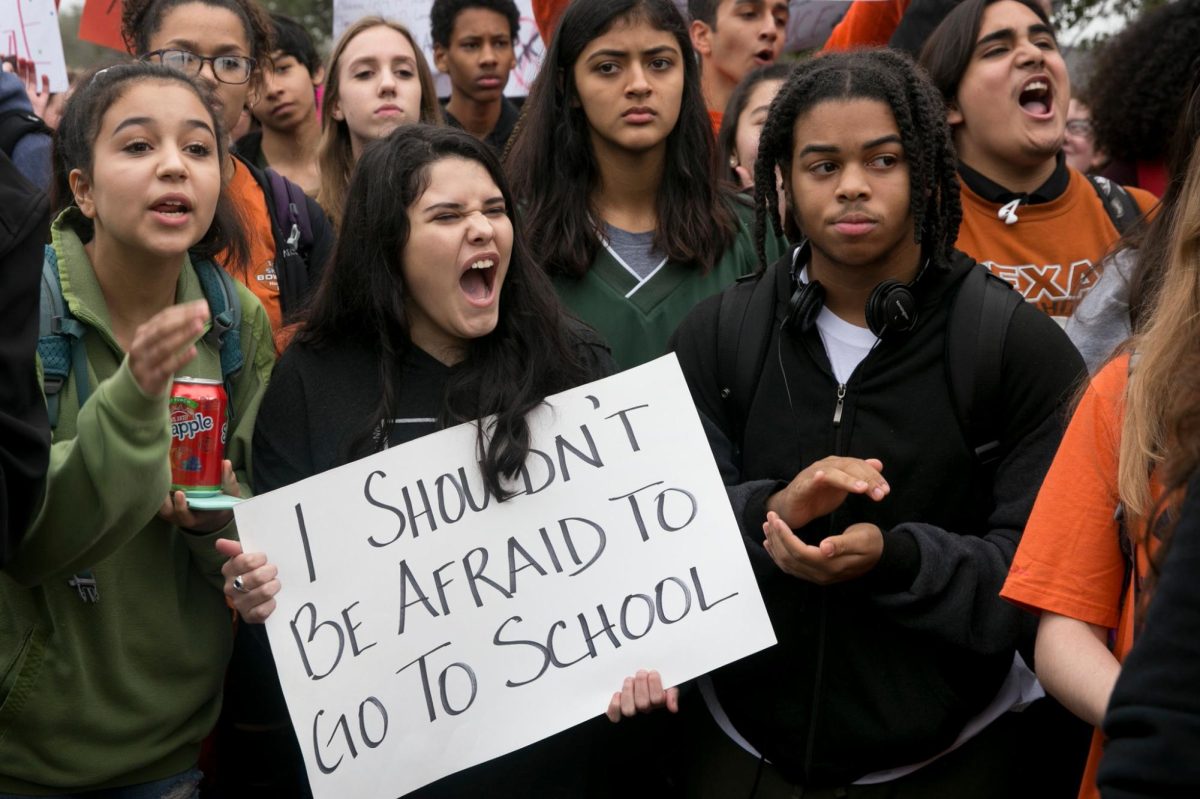
In recent years (and I’m guessing for most of history) teenagers have been seen as lazy and uneducated by adults and older generations, judged for lack of experience or the underdevelopment of their frontal lobes. When it comes to complex topics like politics, teenagers aren’t usually encouraged to discuss them or share their opinions. Heck, eighteen-year-olds weren’t even allowed to vote until 1971 with the ratification of the 26th Amendment.
No matter what impression each generation of youth leaves on the world, one fact is undeniable: Teenagers have always left huge impacts on the political and social movements of their times. Think about it—as Gen Z we learn about civil rights efforts like the Dockum Sit-in in our U.S. history classes, and we’ve even experienced our own forms of impact within the Biden and Harris administrations in 2020.
Back in the 1950’s and 60’s when the civils rights movement was active, students in Wichita played an important role on how segregation was managed in shops and public places. After a month of protesting peacefully by waiting to be served at the Dockum Drug Store (after previously being denied because of their skin color) a group of African American high schoolers successfully ended segregation at the local lunch counter. This prompted the rise of sit-ins across America as a form of peaceful protest.
During the Biden-Harris run in 2020, the voting turnout for younger voters rose exponentially: “We estimate that 50% of young people, ages 18-29, voted in the 2020 presidential election, a remarkable 11-point increase from 2016 (39%) and likely one of the highest rates of youth electoral participation since the voting age was lowered to 18” (CIRCLE). To put it simply, the turn out of younger voters helped Biden win the 2020 election because of their presence. This shows exactly why voting in every election and staying politically active is so important.
But, you may be wondering: If teenagers have shown time and time again that their actions can make significant differences, why aren’t they doing it now? In a survey done by CIRCLE, they found that “76% of respondents believe young people have the power to change the country, and 77% believe there are ways for them to get involved” (CIRCLE). Unfortunately, the lack of assurance and information has prevented students and teens from feeling confident about political engagement.
If there is one thing you take away from this article, it should be this: Politics is not something you can ignore; it affects you no matter who you are. Getting involved in politics as a teenager can feel stressful and difficult, but it’s an important part of daily life. It is a constitutional right to make sure you are represented and heard.
If you are interested in learning more and want to promote positive changes in our country, here are some tips:
Register to vote – Giving your opinion in every situation, no matter how insignificant you might think it is.
Keep up with local and national news – Knowing about new policies and laws is the first step to staying informed.
Read books – Especially challenged or banned novels—they’re being banned for a reason.
Use your voice – Remember, your words and actions can make a difference. Talk to the people who represent you and hold them accountable.
Join groups – One of the best ways to use your voice is to talk to like-minded people who share your ideas.
Sources:
https://www.visitwichita.com/blog/post/dockum-drugstore-sit-in-why-it-matters-to-wichitas-rich-cultural-history/
https://circle.tufts.edu/latest-research/half-youth-voted-2020-11-point-increase-2016
https://www.wlrn.org/government-politics/2024-06-24/young-voters-shaped-the-2020-election-can-they-do-it-again-in-2024
https://circle.tufts.edu/latest-research/youth-are-interested-political-action-lack-support-and-opportunities